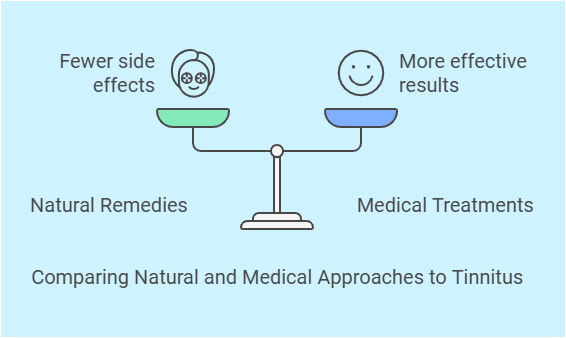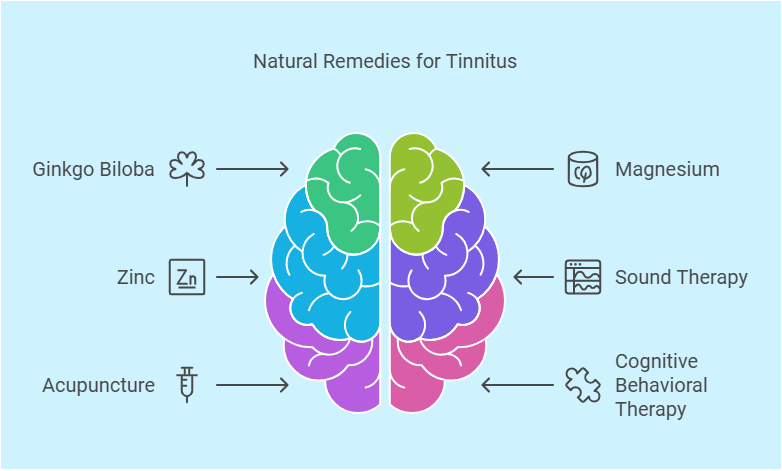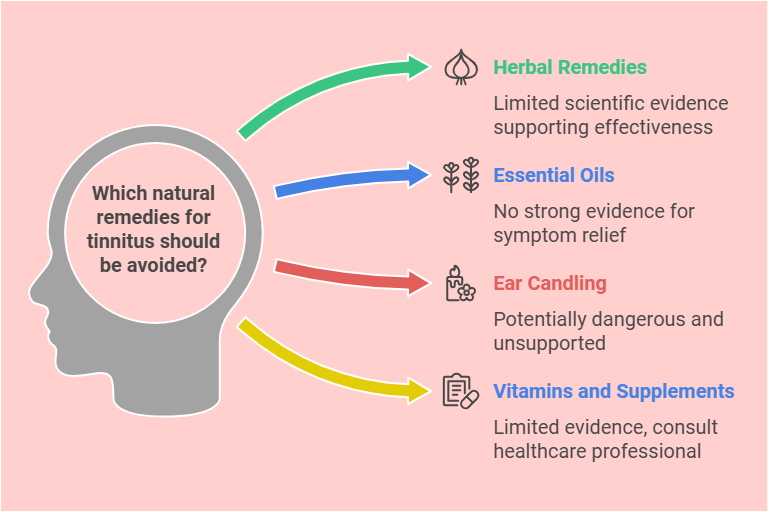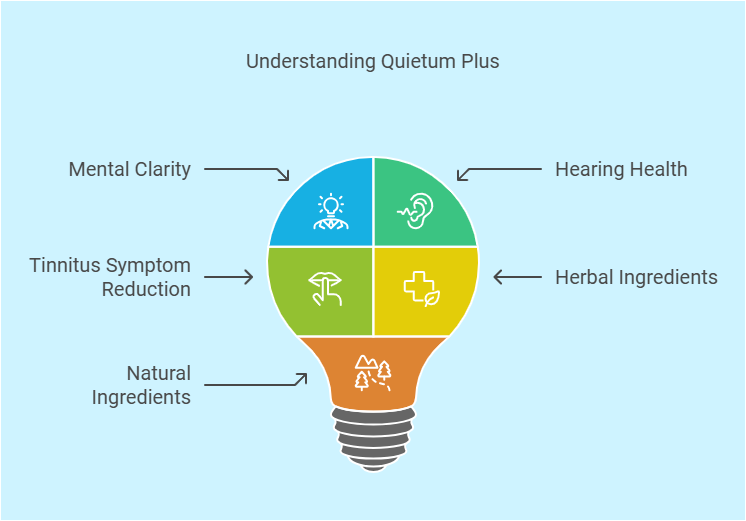
Natural Remedies for Tinnitus: What Works and What Doesn’t
Tinnitus, that ringing, buzzing, or hissing sound in your ears, can be incredibly frustrating and often hard to manage. While there is no one-size-fits-all treatment, many people turn to natural remedies to help alleviate their symptoms. In this blog post, we’ll explore some of the most common natural remedies for tinnitus, diving into what works, what doesn’t, and how you can manage your symptoms more effectively.
What Is Tinnitus and Why Do People Seek Natural Remedies?
Tinnitus is a condition that causes a person to hear sounds that aren’t actually present. It can be constant or intermittent and can range from a mild annoyance to a debilitating condition. While medical treatments can help, many people look for natural remedies to avoid medications or to complement their existing treatment plans.
Natural remedies are often appealing because they come with fewer side effects compared to pharmaceuticals. But with so many options available, it’s important to know which ones are backed by research and which are just “tinnitus myths.”

Natural Remedies for Tinnitus: What Works?
Here are a few natural remedies that have been shown to help manage tinnitus symptoms:
1. Ginkgo Biloba
Ginkgo biloba is one of the most commonly used herbal remedies for tinnitus. Some studies suggest that it can help improve blood circulation to the ears, which might reduce the ringing or buzzing sound. While not everyone will experience relief, it’s worth trying if you’re looking for a natural option.
2. Magnesium
Magnesium is a mineral that helps regulate nerve function and blood flow. Some people find relief from their tinnitus symptoms by increasing their magnesium intake, either through food or supplements. Foods like spinach, almonds, and avocados are great sources of magnesium.
3. Zinc
Zinc deficiency is sometimes linked to tinnitus, and supplementation may help. A small study found that people with low zinc levels had a greater chance of improving their tinnitus symptoms when they took zinc supplements. If you think you’re lacking zinc, try adding zinc-rich foods like meat, shellfish, and legumes to your diet.
4. Sound Therapy (White Noise)
Sound therapy, which uses background noise like white noise or nature sounds, is a popular treatment for tinnitus. By masking the ringing or buzzing, sound therapy can make the tinnitus less noticeable. You can use sound machines or apps that play calming sounds to help you sleep or relax.
5. Acupuncture
Some people find relief from tinnitus through acupuncture. The practice involves inserting thin needles into specific points on the body to stimulate healing. While scientific evidence is still limited, many tinnitus sufferers report improvements after acupuncture sessions.
6. Cognitive Behavioral Therapy (CBT)
Although not a “remedy” in the traditional sense, CBT can be very effective in managing the emotional distress caused by tinnitus. It helps patients develop coping strategies to manage the anxiety, stress, and depression that often accompany the condition. It’s worth considering if your tinnitus is affecting your mental well-being.

Natural Remedies for Tinnitus: What Doesn’t Work?
While there are some natural remedies that show promise, there are others that may not provide much relief. Here are some that you can skip:
1. Herbal Remedies Like Hawthorn and Pomegranate Extract
While herbs like hawthorn and pomegranate extract are sometimes suggested for various health conditions, there is limited scientific evidence to support their effectiveness in treating tinnitus. While these herbs have other potential health benefits, they are unlikely to provide significant relief from tinnitus symptoms on their own.
2. Essential Oils
Some people believe that essential oils, like lavender or peppermint, can ease tinnitus symptoms when applied topically or used in a diffuser. However, there’s no strong evidence that essential oils can effectively treat tinnitus. They might help with relaxation, but they won’t necessarily reduce the ringing in your ears.
3. Ear Candling
Ear candling is a practice where a candle is placed in the ear to supposedly remove earwax and toxins. Unfortunately, there’s no scientific support for this method, and it can even be dangerous. It’s best to avoid ear candling as a solution for tinnitus.
4. Vitamins and Supplements with Limited Evidence
While some supplements claim to help with tinnitus, such as vitamin B12 or vitamin A, there is limited evidence to support their effectiveness. It’s important to talk to a healthcare professional before trying these, as their benefits for tinnitus relief are unclear.

Quietum Plus Supplement
If you’re looking for a more comprehensive, natural solution, you might want to consider Quietum Plus. This supplement has been designed specifically to support mental clarity, hearing health, and reduce the severity of tinnitus symptoms.
Quietum Plus contains a blend of herbs and natural ingredients that work together to promote ear health, reduce ringing, and improve overall well-being.
If you’re curious to see if Quietum Plus might be the right fit for you, feel free to check it out. You can learn more about its ingredients and benefits by following the link below!

FAQ: Natural Remedies for Tinnitus – What Works and What Doesn’t
1. Can herbal remedies cure tinnitus?
Herbal remedies like ginkgo biloba may help some people reduce symptoms, but they’re not a cure. It’s important to manage expectations and understand that results vary.
2. Does magnesium help with tinnitus?
Magnesium might help some tinnitus sufferers by improving blood flow and nerve function. However, it doesn’t work for everyone, and its effectiveness can vary from person to person.
3. How does cognitive behavioral therapy (CBT) help tinnitus?
CBT doesn’t cure tinnitus, but it helps manage the emotional and psychological effects that come with the condition. It can teach you how to cope with anxiety and stress, which often worsen tinnitus symptoms.
4. Is sound therapy effective for tinnitus?
Yes, sound therapy can help by masking the ringing or buzzing sound, making it less noticeable. Many people find relief using white noise or nature sounds, especially at night.
5. Are there any natural treatments that can make tinnitus worse?
Some treatments, like ear candling, can actually be harmful and should be avoided. Always check with a healthcare professional before trying new remedies, especially those that involve invasive procedures.
Conclusion
While tinnitus can be a challenging condition to deal with, there are natural remedies that might help manage the symptoms. Some, like ginkgo biloba, magnesium, and sound therapy, have shown promise for many people. Others, like ear candling and certain herbal remedies, may not be effective and could even be harmful. Always talk to your healthcare provider before trying new treatments to ensure they’re safe for you.
If you’re looking for additional support in managing your tinnitus, consider trying Quietum Plus, a supplement designed to improve hearing and reduce tinnitus symptoms. It might just be the extra help you need!

